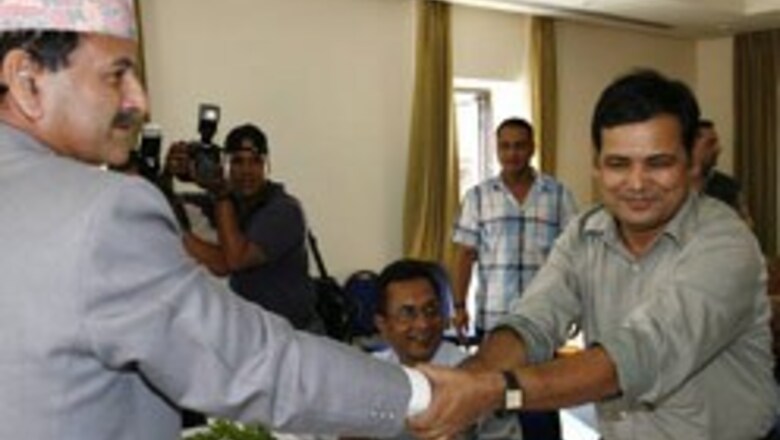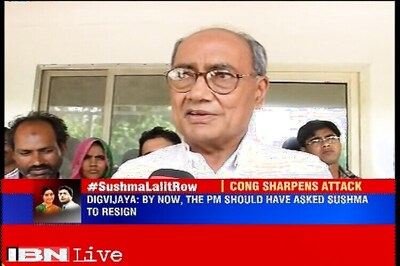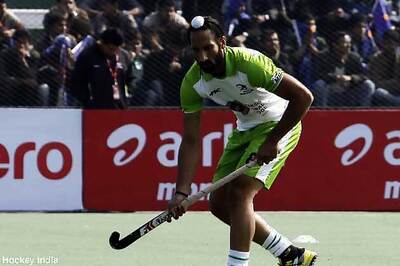
views
Kathmandu: The Nepali government and Maoist rebels said they had agreed to end attacks on each other's bases and stop recruitment, and vowed to work for peace in the Himalayan nation where a civil war has killed thousands.
Ending the opening round of their first peace talks since 2003 late on Friday, they also agreed to a 25-point code of conduct which commits both sides to cease provocations and stop showing and using arms to intimidate people.
They also promised early elections for a special assembly to draw up a new constitution and map out what the future political system will look like.
Nepal has gone from being a centuries-old absolute monarchy to a constitutional one but the country was thrown into disarray when King Gyanendra dissolved parliament 15 months ago.
The Maoists want to abolish the monarchy altogether.
"We have already agreed on our main political agenda," chief rebel negotiator Krishna Bahadur Mahara told reporters, referring to the assembly.
He was speaking after a six-hour meeting with the government team at a luxury resort outside the capital.
"Now, we have only one-point agenda left and that is to quickly elect the constituent assembly," Mahara said.
Chief government negotiator Home interior Minister Krishna Prasad Sitaula, sitting by his side, agreed.
"We are convinced that there will be no more bloodshed," Sitaula said.
Hopes for peace in Nepal have risen since a new multi-party government took power last month after King Gyanendra handed power to political parties following weeks of violent street protests.
Services allowed in rebel-held areas
More than 13,000 people have died since the Maoists began the revolt in 1996 in the remote western hills of Nepal.
The Maoists now control huge swathes of the countryside and their insurgency has wrecked the impoverished economy, scared away investors and forced foreign donors to scale down aid.
Under the 25-point code of conduct agreed Friday, the Maoists will allow basic services like health, distribution of food grains and development projects in the rebel-held areas.
Forced collection of donations will stop, and schools as well as businesses will be allowed to function, the code said.
"This time we have come for talks with seriousness and with a greater sense of responsibility for the people," Mahara said.
"We don't want to return to war again," he added.
Previous peace talks failed in 2001 and 2003.
The Maoists also committed to competitive multi-party system, individual freedom and fundamental human rights.
The government has matched a rebel truce, bringing calm to the countryside.
The latest talks were also aimed at preparing the ground for a meeting between rebel chief Prachanda and Prime Minister Girija Prasad Koirala.
No date has been fixed.



















Comments
0 comment